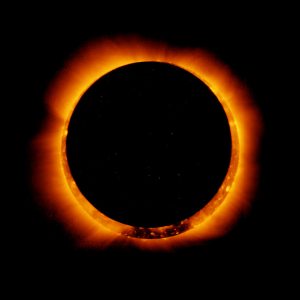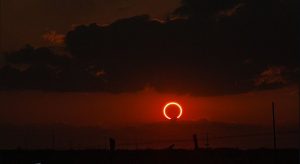The first lunar eclipse of 2021 will be on May 26. This isn’t just another occurrence as a lunar eclipse, a blood moon and a supermoon will be all at once.
What is a supermoon?
A supermoon occurs when a full moon coincides with the point in the orbit of the moon nearest to the Earth. A supermoon appears slightly bigger and closer than normal.
The term supermoon was coined in 1979 by Richard Nolle, when astronomers would call it a perigean full moon, a full moon at the closest point in its orbit to Earth. On Wednesday, after a lunar eclipse, the moon will appear reddish in colour and is named as blood supermoon.
Also Read: Blood Moon to appear on May 26: All you need to know
The angular diameter of a full moon is nearly 7% bigger than the average-size full moon, the diameter could go as big as 14% than of a micro-moon. The moon might appear as much as 30% brighter and 14% larger than usual, but it is very hard to see the difference with the naked eye.
According to NASA, the May supermoon will be just 157 kilometres closer than the April supermoon and will be the closest and therefore, the biggest supermoon of 2021.
Also Read: Major space events in the celestial calendar of 2021
The May 2021 full moon is also called a flower moon. According to ancient culture, the name reflects the changing of seasons. This event comes at a time when flowers bloom in abundance, hence the name.
Also Read: 4 hours, 50,000 pictures: This is how Pune boy captured clearest photo of moon
Supermoons have different names as they appear round the year such as pink moon, worm moon, strawberry moon and sturgeon moon, named after changing seasons by following lunar months.






